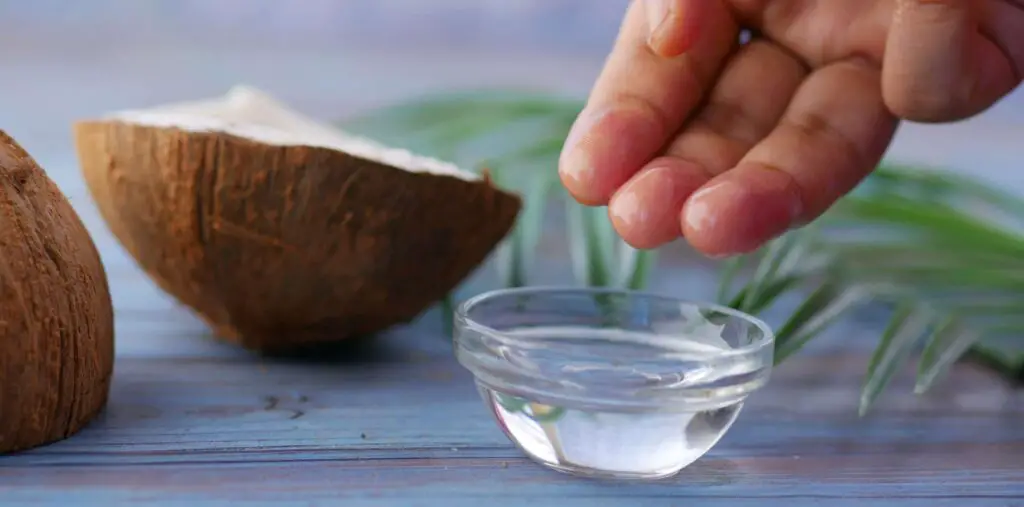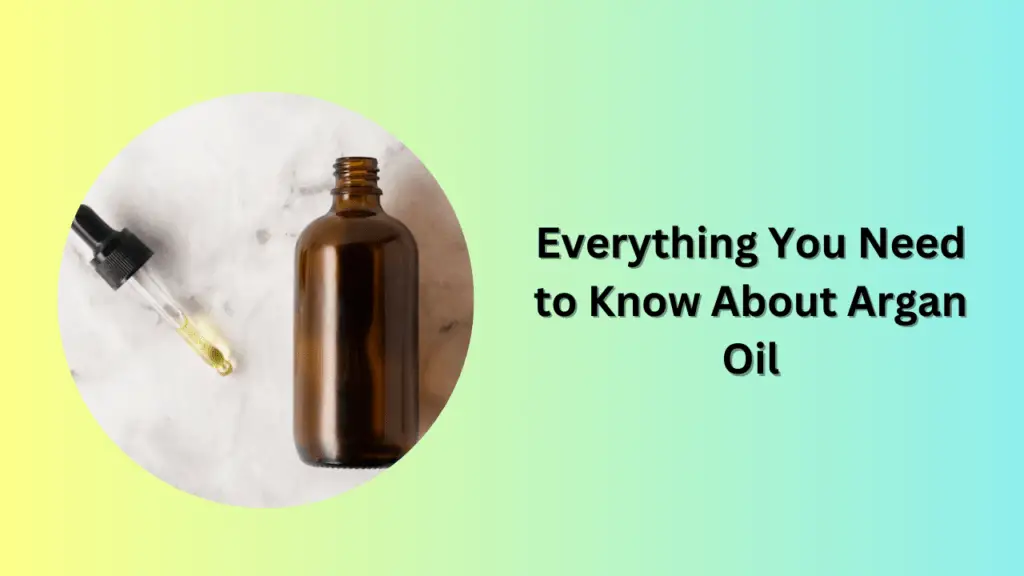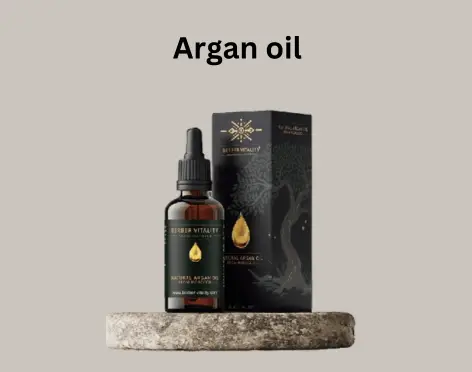Table of Contents
ToggleIntroduction
Are you tired of trying countless skincare and haircare products that promise to work wonders but leave you disappointed? If you’re looking for a natural remedy that can truly transform your skin and hair, look no further than argan oil. This precious oil, often referred to as “liquid gold,” has been used for centuries by Moroccan women for its incredible benefits. In this comprehensive guide, we will delve into everything you need to know about argan oil and how it can revolutionize your beauty routine.
Origins of Argan Oil
Let’s start by exploring the origins of argan oil. Derived from the kernels of the argan tree, which is native to Morocco, this oil is packed with nutrients that are beneficial for both skin and hair. The extraction process is labor-intensive and traditionally done by hand, making argan oil a precious commodity.
Best Argan oil
✨ Unleash Radiance with Your Natural Argan Oil:
- Enjoy intense hydration for Your natural, luminous glow.
- Revitalize Your complexion, promoting Your youthful skin.
🛑 Say Goodbye to Dryness with Your Natural Argan Oil:
- Embrace a non-greasy formula for Your deep nourishment.
- Soften Your skin and eliminate dry patches.
Nutrient-Rich Composition of Argan Oil
Argan oil is rich in essential fatty acids, antioxidants, vitamins A and E, and other nourishing compounds that make it a powerhouse for beauty. These nutrients work together to hydrate, protect, and rejuvenate the skin and hair, providing a natural solution for a wide range of beauty concerns.
Benefits of Argan Oil for Skin

Argan oil offers a myriad of benefits for the skin, making it a versatile and effective skincare ingredient.
Moisturizing and Hydrating
One of the most notable benefits of argan oil is its ability to moisturize and hydrate the skin. Whether you have dry, flaky skin or oily skin that needs balancing, argan oil can help restore the skin’s natural moisture barrier, leaving it soft and supple.
Anti-Aging Properties
Thanks to its high content of antioxidants and vitamins, argan oil is a potent anti-aging elixir. It helps reduce the appearance of fine lines and wrinkles while promoting cell regeneration and overall skin rejuvenation.
Skin Repair and Healing
If you have skin conditions such as eczema, psoriasis, or acne, argan oil can be your new best friend. Its anti-inflammatory and healing properties can soothe irritated skin, reduce redness, and promote faster healing of blemishes.
Protection from Sun Damage
Argan oil acts as a natural shield against the harmful effects of UV radiation. By applying it to your skin daily, you can protect against sunburn, premature aging, and other sun-related skin issues.
Benefits of Argan Oil for Hair

Not only is argan oil a game-changer for skincare, but it also works wonders for the hair.
Deep Conditioning
Argan oil is an excellent deep conditioner that can revitalize and nourish dry, damaged hair. By massaging a few drops of oil into your hair and scalp, you can restore shine, smoothness, and manageability to your locks.
Frizz Control
Say goodbye to frizzy hair days with argan oil. Its lightweight formula tames unruly strands, seals split ends and adds a glossy finish to your hair.
Scalp Health
A healthy scalp is the foundation for healthy hair, and argan oil can help maintain optimal scalp health. It nourishes the scalp, reduces inflammation, and promotes overall hair growth.
Heat Protection
Whether you’re using a hairdryer, straightener, or curling iron, argan oil can protect your hair from heat damage. Apply it before styling to create a protective barrier that keeps your strands healthy and strong.
Tips to choose the best quality argan oil

- Look for Pure and Organic Certification: Opt for argan oil that is labeled as “100% pure” or “certified organic.” This ensures that the oil is free from additives, preservatives, and synthetic chemicals, preserving its natural benefits.
- Check the Ingredients List: Ensure that the only ingredient listed is “argania spinosa kernel oil,” which is the scientific name for argan oil. Avoid products that contain fillers or additional ingredients.
- Consider the Packaging: High-quality argan oil is typically packaged in dark glass bottles to protect it from exposure to light, which can degrade its quality over time. Avoid plastic containers, as they may leach harmful chemicals into the oil.
- Look for Cold-Pressed or Unrefined: Cold-pressed or unrefined argan oil undergoes minimal processing, preserving its natural nutrients and properties. This extraction method ensures the oil retains its full potency and aroma.
- Check the Scent and Color: Pure argan oil has a mild, nutty aroma and a golden-yellow color. If the oil has a strong or unpleasant smell, or if it appears colorless, it may be of inferior quality or diluted with other oils.
- Read Customer Reviews: Before making a purchase, read reviews from other customers to gauge their experiences with the product. Look for feedback on the oil’s effectiveness, purity, and overall quality.
- Consider Price and Value: While high-quality argan oil may be more expensive, it’s worth investing in a product that delivers genuine benefits. Be wary of overly cheap options, as they may be diluted or of lower quality.
Tips to Incorporate Argan Oil into Your Beauty Routine

Now that you know about the amazing benefits of argan oil, you’re probably wondering how to incorporate it into your daily beauty routine. These are a few easy ways to do it:
- Use a few drops of argan oil as a facial moisturizer in the morning and evening.
- Add a few drops of oil to your favorite body lotion for extra hydration.
- Apply argan oil to damp hair before styling to protect and nourish your strands.
- Use argan oil as a cuticle treatment to keep your nails healthy and strong.
Side effects of argan oil
- Skin irritation: Some people may experience skin irritation, rashes, or contact dermatitis after using argan oil topically.
- Nut allergies: People with nut allergies should avoid using argan oil, as it is derived from the kernels of the argan tree, which is a type of tree nut.
- Digestive issues: Consuming argan oil orally may cause digestive issues such as nausea, flatulence, diarrhea, appetite loss, or bloating.
- Interaction with blood thinners: Argan oil contains tocopherols, a form of vitamin E, which may slow blood clotting. This could potentially cause an interaction with blood thinners like warfarin, leading to an increased bleeding risk.
- Pregnancy and breastfeeding: There is not enough research on the safety of argan oil during pregnancy and breastfeeding, so it is best to consult with a healthcare provider before using it.
- Storage: Argan oil should be stored away from direct sunlight and not used if it has a bad smell.
- Quality: It is important to purchase argan oil from reputable sources to ensure its quality and safety.
Conclusion
In conclusion, argan oil is truly a miracle elixir that can transform your skin and hair. With its potent blend of nutrients and benefits, it’s no wonder that this liquid gold has become a staple in the beauty industry. Whether you’re looking to moisturize, anti-age, repair, or protect, argan oil has got you covered. So why not unlock the secret of argan oil and experience the radiant skin and luscious hair you’ve always dreamed of? Try it out for yourself and let this magical oil work its wonders on you!


